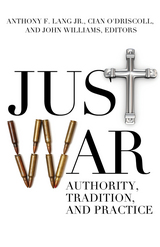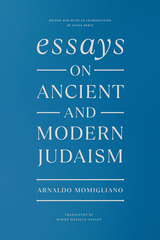
What obligations do nations have to protect citizens of other nations? As responsibility to our fellow human beings and to the stability of civilization over many years has ripened fully into a concept of a "just war," it follows naturally that the time has come to fill in the outlines of the realities and boundaries of what constitutes "just" humanitarian intervention.
Even before the world changed radically on September 11, policymakers, scholars, and activists were engaging in debates on this nettlesome issue—following that date, sovereignty, human rights, and intervention took on fine new distinctions, and questions arose: Should sovereignty prevent outside agents from interfering in the affairs of a state? What moral weight should we give to sovereignty and national borders? Do humanitarian "emergencies" justify the use of military force? Can the military be used for actions other than waging war? Can "national interest" justify intervention? Should we kill in order to save?
These are profound and troubling questions, and questions that the distinguished contributors of Just Intervention probe in all their complicated dimensions. Sohail Hashmi analyzes how Islamic tradition and Islamic states understand humanitarian intervention; Thomas Weiss strongly advocates the use of military force for humanitarian purposes in Yugoslavia; Martin Cook, Richard Caplan, and Julie Mertus query the use of force in Kosovo; Michael Barnett, drawing on his experience in the United Nations while it debated how best to respond to Rwandan genocide, discusses how international organizations may become hamstrung in the ability to use force due to bureaucratic inertia; and Anthony Lang ably envelopes these—and other complex issues—with a deft hand and contextual insight.
Highlighting some of the most significant issues in regard to humanitarian intervention, Just Intervention braves the treacherous moral landscape that now faces an increasingly unstable world. These contributions will help us make our way.

The just war tradition is central to the practice of international relations, in questions of war, peace, and the conduct of war in the contemporary world, but surprisingly few scholars have questioned the authority of the tradition as a source of moral guidance for modern statecraft. Just War: Authority, Tradition, and Practice brings together many of the most important contemporary writers on just war to consider questions of authority surrounding the just war tradition.
Authority is critical in two key senses. First, it is central to framing the ethical debate about the justice or injustice of war, raising questions about the universality of just war and the tradition’s relationship to religion, law, and democracy. Second, who has the legitimate authority to make just-war claims and declare and prosecute war? Such authority has traditionally been located in the sovereign state, but non-state and supra-state claims to legitimate authority have become increasingly important over the last twenty years as the just war tradition has been used to think about multilateral military operations, terrorism, guerrilla warfare, and sub-state violence. The chapters in this collection, organized around these two dimensions, offer a compelling reassessment of the authority issue’s centrality in how we can, do, and ought to think about war in contemporary global politics.
READERS
Browse our collection.
PUBLISHERS
See BiblioVault's publisher services.
STUDENT SERVICES
Files for college accessibility offices.
UChicago Accessibility Resources
home | accessibility | search | about | contact us
BiblioVault ® 2001 - 2024
The University of Chicago Press









